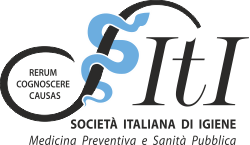The vaccine protects against the disease caused by tick-borne encephalitis (TBE).
One vaccine exists for adults (from the age of 16) and one for children. The vaccination can be administered at any age after 5 months. The indication for vaccination in children between 5 months and 6 years must be assessed individually based on the risks of exposure and the benefits of protection.
The vaccine does not protect against other viruses and bacteria that can be transmitted by tick bites, therefore it is necessary to adopt all possible precautions to avoid bites in at-risk areas, including using special footwear and covering legs and arms with appropriate clothing.
Who should be vaccinated
Vaccination is recommended for those who reside permanently or temporarily in wooded or rural areas that are endemic for tick-borne meningoencephalitis. The population at risk is made up of people exposed to bites from infected ticks during outdoor activities. These ticks have their natural habitat in moderately humid places in deciduous and mixed forests with abundant undergrowth. The pathology is endemic in the temperate regions of Europe and Asia, from eastern France to the north of Japan and from the north of Russia to Albania. Russia has the highest prevalence, and western Siberia the highest incidence. In Italy the largest number of cases have been recorded in recent years in Friuli and Trentino Alto-Adige.
When to vaccinate
Vaccination can be undertaken at any time of the year. However, the risk of infection is greater in spring and early summer as ticks need heat and humidity to be active; therefore the best time to start vaccination is in winter, so as to be already protected in the period of maximum tick activity and TBE incidence. In order to be protected by the start of the ticks’ seasonal activity, the first and second doses should preferably be administered in the winter months. The vaccination programme must be completed with the third dose within the same tick season or before the following one.
Who should not be vaccinated (contraindications)
There are some contraindications:
- Absolute: Hypersensitivity to the active ingredient.
- Relative: vaccination should be postponed if the subject is suffering from an acute febrile infection.
In pregnant women, the vaccine should only be administered if strictly necessary, carefully evaluating the risk/benefit ratio.
It is not known whether the vaccine or its antibodies are excreted in breast milk during breastfeeding.
In the presence of a known or suspected autoimmune disease in the subject to be vaccinated, it is necessary to assess the risk of a possible TBE infection compared to the risk that the vaccine may produce an adverse effect on the course of the autoimmune disease itself.
Individuals undergoing immunosuppressive therapy or who have other immunodeficiencies may have a decreased antibody response to active immunsation. Like all inactivated vaccines, the TBE vaccine given to people taking immunosuppressive drugs, including high doses of corticosteroids, or having undergone radiation therapy, may result in insufficient immunisation.
There are no known interactions with other drugs or immunobiological products, including vaccines.
Vaccination risks
Depending on the frequency with which they occur, the adverse reactions reported following the administration of the vaccine are categorised as:
- Very common (≥ 1/10): pain at the injection site
- Common (≥1 / 100, <1/10): headache, nausea. joint and muscle pains
- Uncommon (≥1 / 1000, <1/100): lymphadenopathy, vomiting, fever
- Rare (≥ 1/10000, <1/1000): drowsiness, dizziness (only for the first dose) hypersensitivity, diarrhea, abdominal pain, injection site reactions such as: erythema, hardening, swelling, itching, paresthesia
Sources / Bibliography
- Smit R, Postma MJ. Review of tick-borne encephalitis and vaccines: clinical and economical aspects. Expert Rev Vaccines. 2014 Nov 26:1-11.
- Amicizia D, Domnich A, Panatto D, Lai PL, Cristina ML, Avio U et al. Epidemiology of tick-borne encephalitis (TBE) in Europe and its prevention by available vaccines. Hum Vaccin Immunother. 2013 May;9(5):1163-71.
- Kollaritsch H, Paulke-Korinek M, Holzmann H, Hombach J, Bjorvatn B, Barrett A. Vaccines and vaccination against tick-borne encephalitis.Expert Rev Vaccines. 2012 Sep;11(9):1103-19.
- Circolare del Ministero della Sanità n. 10 del 13 luglio 2000
- TBE--update on vaccination recommendations for children, adolescents, and adults.Wien Med Wochenschr. 2012 Jun;162(11-12):248-51.



